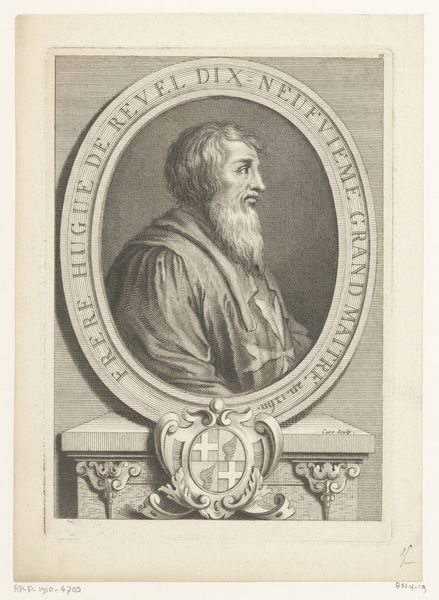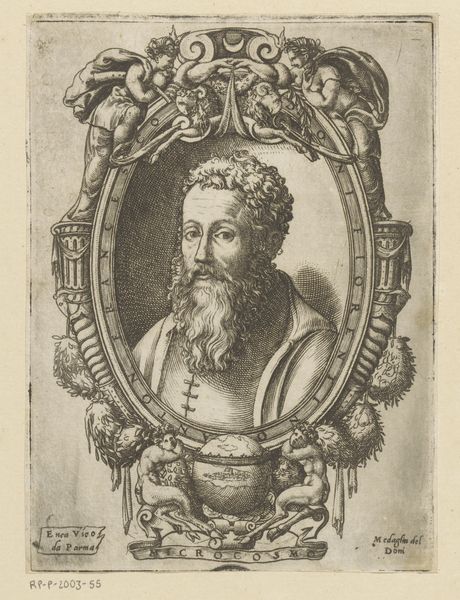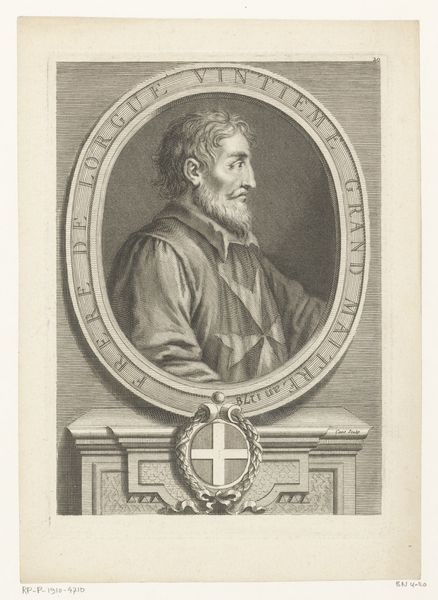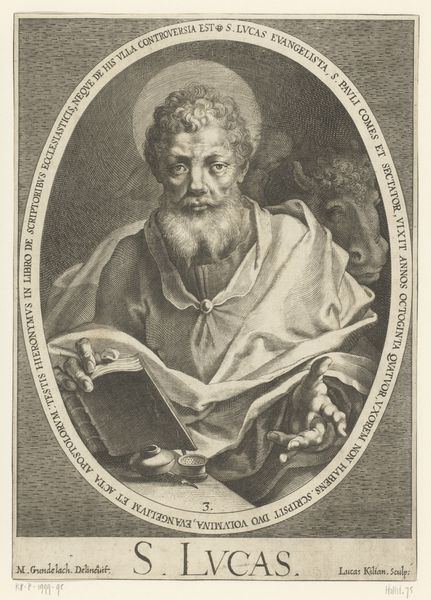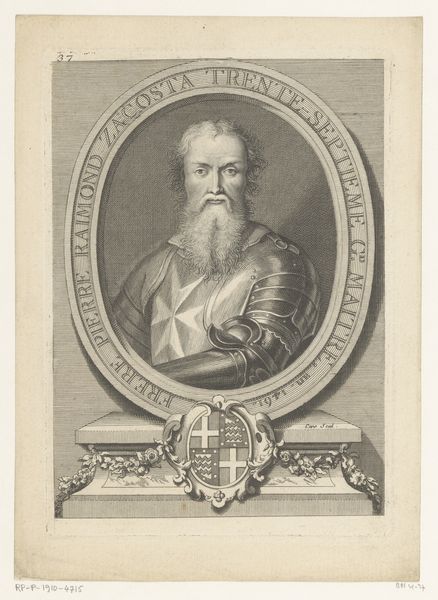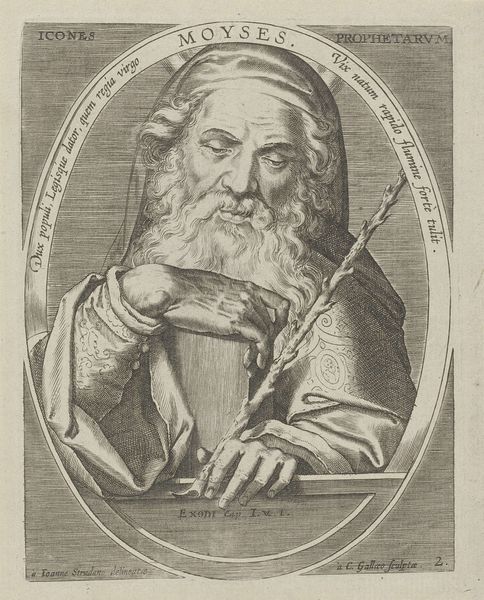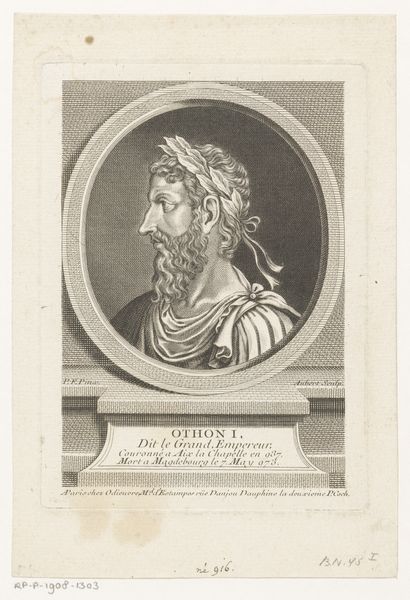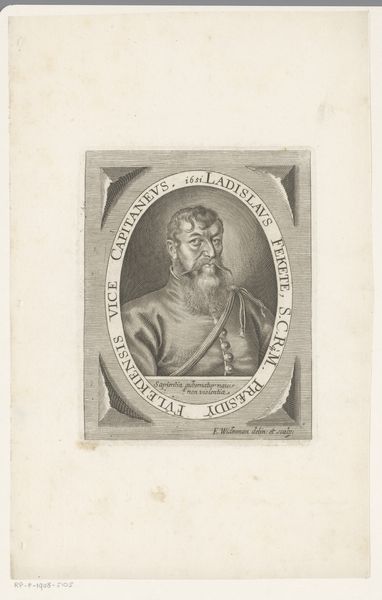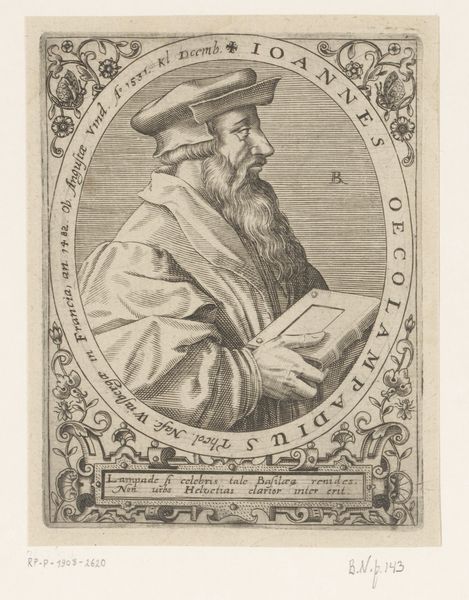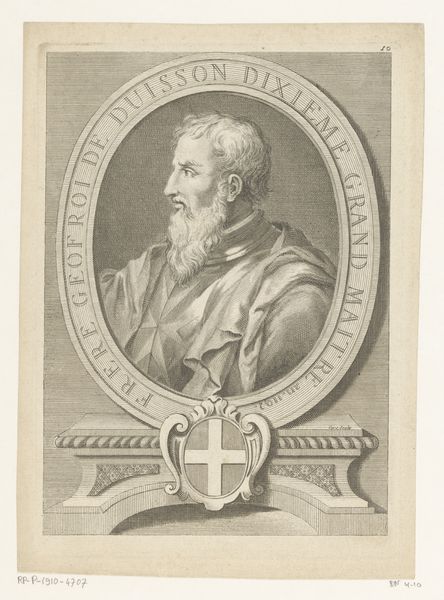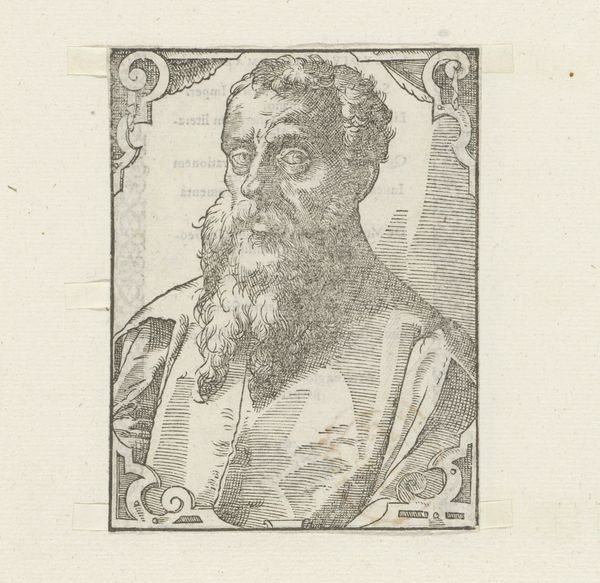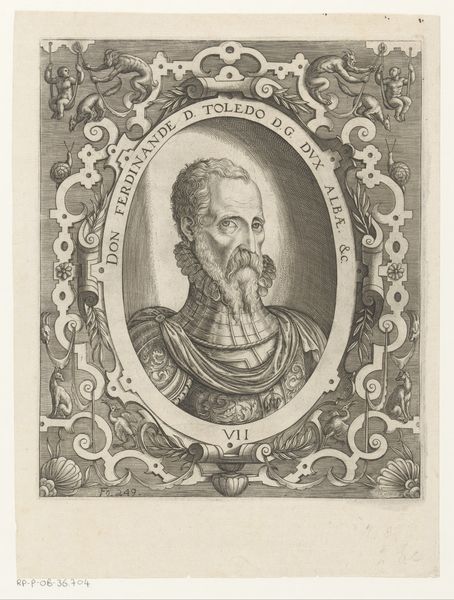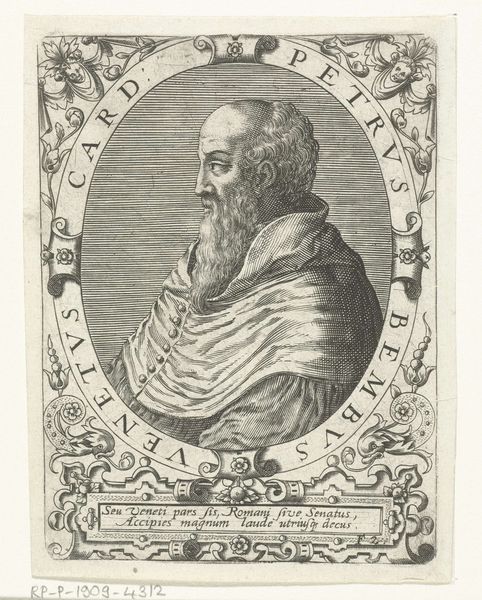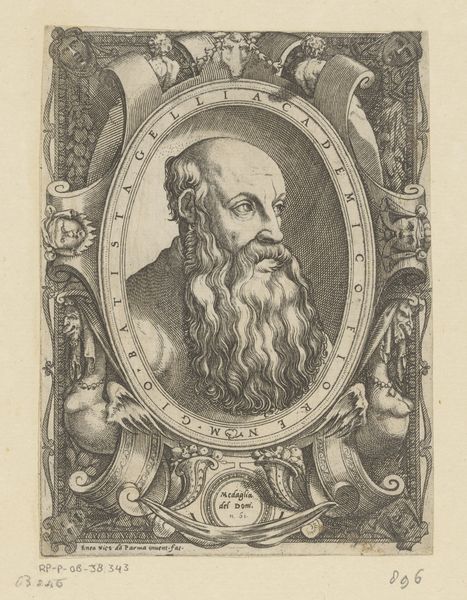
engraving
#
portrait
#
baroque
#
line
#
engraving
#
realism
Dimensions: height 213 mm, width 154 mm
Copyright: Rijks Museum: Open Domain
This print of Juan Fernández de Heredia was made by Laurent Cars, probably in the mid-18th century, using a technique called engraving. Look closely, and you’ll see that the image is composed of thousands of tiny lines, all incised into a copper plate with a tool called a burin. Engraving demands intense concentration and skilled handwork. The engraver has to plan the image in advance, and then execute it in reverse. The depth and density of the lines determine the tonal range of the print. Although seemingly simple, prints like this played an important social role. They circulated images widely, effectively creating a visual culture for a growing public. This engraving would have amplified the subject's status, through meticulous labor and the power of reproducible imagery. So, when you look at this image, consider not just the likeness of the man, but the labor that went into its making, and the place of prints in shaping social identity. It shows how techniques of making have always been deeply intertwined with social and cultural meaning.
Comments
No comments
Be the first to comment and join the conversation on the ultimate creative platform.
